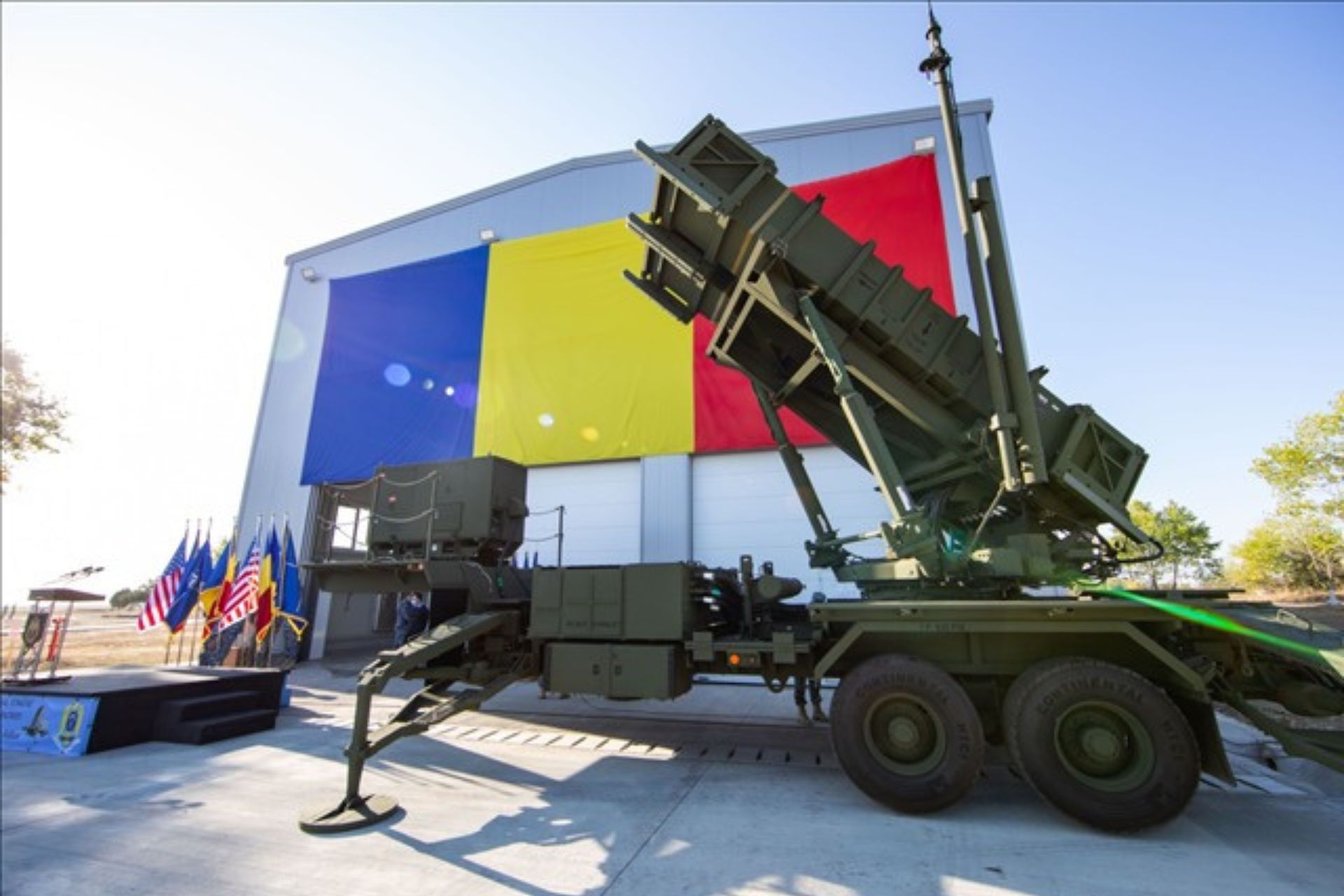Breaking News
Ukraine Receives Patriot System from Romania as Missile Threats Intensify.
On October 3, 2024, a Patriot missile defense system, donated by Romania, a NATO member, arrived in Ukraine, as announced by both neighboring countries. This system is crucial for Ukraine in intercepting missiles, which continue to cause significant damage across Ukrainian territory. The delivery coincided with a surprise visit to Kyiv by the new NATO Secretary-General, Mark Rutte, just two days after taking office.
Follow Army Recognition on Google News at this link

The Patriot system is modular and mobile, with a rapid deployment capability of under an hour (Picture source: NATO)
The MIM-104 Patriot system is designed to intercept ballistic missiles, cruise missiles, and aircraft. Primarily used by the United States and several allied nations, this system is equipped with advanced interceptor missiles and high-performance radars. Its role is to protect against airborne threats as part of an integrated air and missile defense system. The Patriot system is modular and mobile, with a rapid deployment capability of under an hour. It has been in service since the 1980s and has been continuously upgraded to meet evolving threats. Countries such as Israel, Germany, Saudi Arabia, and, more recently, Ukraine, operate this system.
The Patriot system works by combining several key components: AN/MPQ-53 or AN/MPQ-65 radars detect and track targets, while the AN/MSQ-104 control station calculates missile trajectories and coordinates their launch. PAC-2 and PAC-3 missiles, equipped with electronic countermeasure-resistant radar guidance systems, are launched from mobile M901 stations. The PAC-3 variant, with its hit-to-kill technology, is particularly effective against ballistic missiles by destroying them through direct impact. A Patriot battery can carry up to four PAC-2 missiles or 16 PAC-3 missiles.
Romania acquired the Patriot system to bolster its defense against ballistic and aerial threats, particularly after Russia’s annexation of Crimea. Romania began integrating the Patriot systems into its national defense in 2020 as part of its NATO obligations.
Ukrainian President Volodymyr Zelenskyy expressed his gratitude to the countries supporting Ukraine’s air defense, specifically thanking Romania for the Patriot system delivery. He stated on X: "Together, we can enhance our efficiency and end Russian terror by jointly shooting down Shahed drones and missiles." The Romanian Ministry of Defense confirmed to Radio Free Europe/Radio Liberty that the Patriot system had been successfully delivered.
Currently, Ukraine has received or been promised a total of seven Patriot batteries from Western countries, including the United States and Germany, one of which is reported to have been destroyed, according to Oryx.
The situation in Ukraine remains tense, especially for NATO members like Romania, which shares a border with the country. On the night of October 2, Russian drones again struck the strategic port of Izmail on the Danube, prompting Romania to deploy F-16 fighter jets to monitor the situation.
Romanian Defense Ministry spokesman Constantin Spinu confirmed that the Patriot system had been transferred after the Romanian government passed a law in September authorizing the transfer. This legal framework allows Ukraine to use the system free of charge.
Ukraine, which has seen its civilian and energy infrastructure repeatedly targeted by Russian drones and missiles since the start of the invasion, has intensified its calls for modern air defense systems from its Western allies. These systems are vital not only for protecting Ukraine’s airspace but also for allowing the country to strike deeper military targets in Russia to prevent further attacks.
Meanwhile, the Russian Defense Ministry reported that 113 Ukrainian drones were shot down over the regions of Belgorod, Voronezh, Kursk, and Bryansk. Of these, 73 drones were intercepted over Belgorod alone.
Ukrainian strikes on military targets in Russia have become more frequent as the conflict drags on. Combined with increased NATO support, this points to a protracted conflict requiring sustained international backing for Ukraine.


























